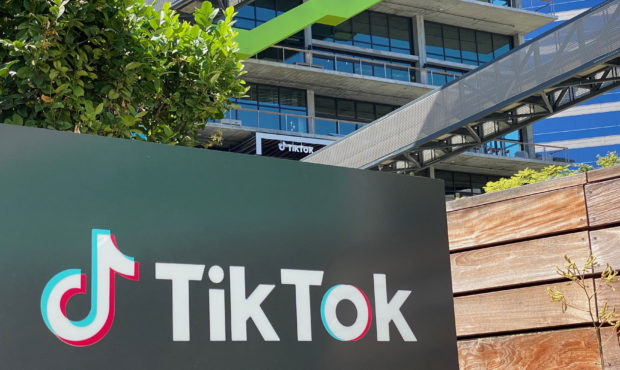TikTok removes six million videos in Pakistan after bans

In this file photo taken on August 11, 2020 the logo of Chinese video app TikTok is seen on the side of the company’s office space at the C3 campus in Culver City, in the westside of Los Angeles. AFP
KARACHI — More than six million videos were removed from TikTok in Pakistan in three months, the app said on Wednesday, as it battles an on-off ban in the deeply conservative country.
Wildly popular among Pakistani youth, the Chinese-owned app has been shut down by authorities twice over “indecent” content, most recently in March after which the company pledged to moderate uploads.
“In the Pakistani market, TikTok removed 6,495,992 videos making it the second market to get the most videos removed after the USA, where 8,540,088 videos were removed,” TikTok Pakistan’s latest transparency report said on Wednesday, covering January to March.
Around 15 per cent of the removed videos were “adult nudity and sexual activities”.
A spokesman said the Pakistan-made videos were banned as a result of both user and government requests.
In the Muslim nation, posting videos in Western clothes that reveal too much skin is taboo, and is often met with abuse.
Earlier this month, small anti-TikTok rallies were held against what protesters called the spreading of homosexual content.
“One can speculate that this is a result of government pressure or a reflection of the large volume of content produced in Pakistan given the popularity of the platform, or both,” said digital rights activist Nighat Dad.
“Social media platforms are more willing to remove and block content in Pakistan to evade complete bans,” she said.
It comes as the app faces a fresh court battle in the port city of Karachi, where a judge has asked telecommunication authorities to suspend it for spreading “immoral content”. The platform is still working in Pakistan, however.
Freedom of speech advocates have long criticised the creeping government censorship and control of Pakistan’s internet and media.
Dating apps have been blocked and last year Pakistani regulators had asked YouTube to immediately block all videos they considered “objectionable” from being accessed in the country, a demand criticised by rights campaigners.